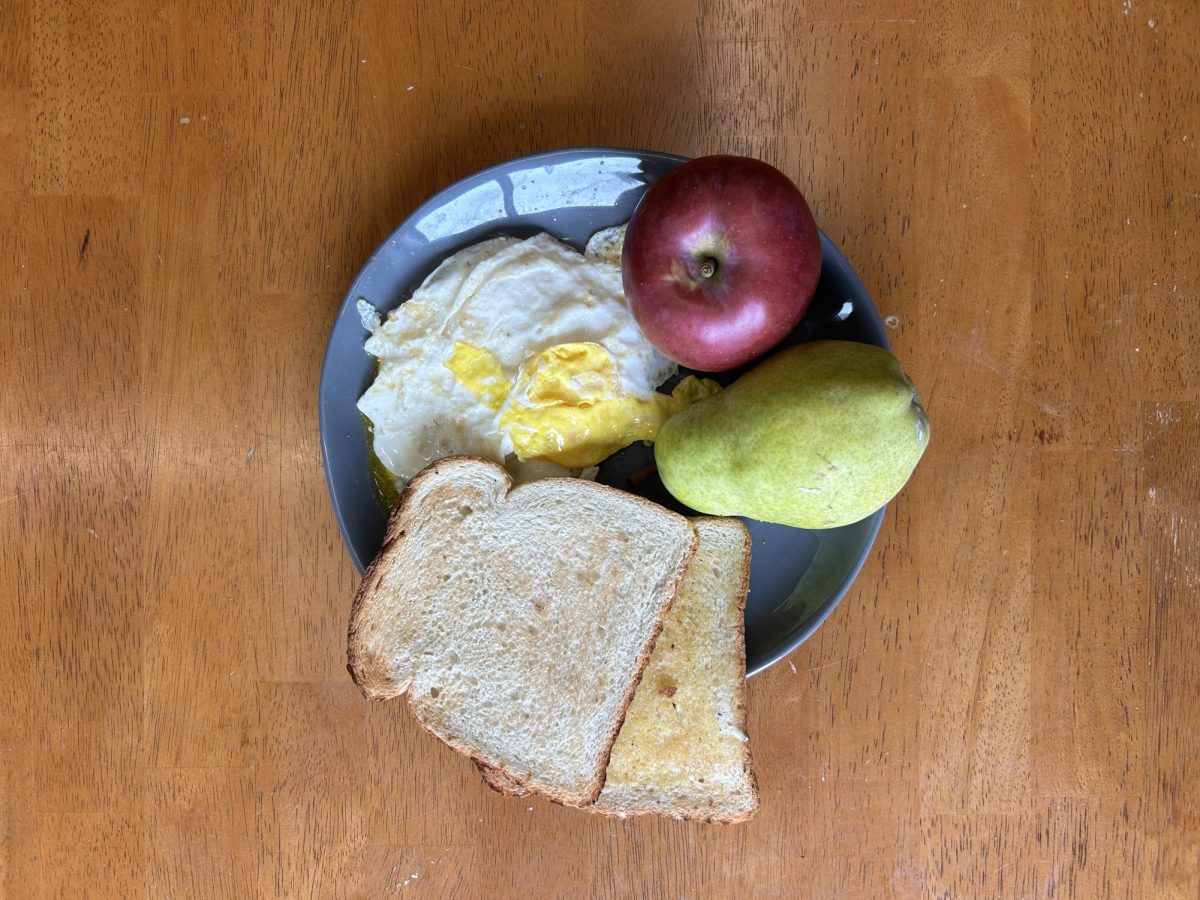With athletes looking for any way to gain a competitive edge in today’s sports scene, nutrition is taking a more prominent role in athletic performance.
Erin Sparrold has been the sports nutritionist for all 23 varsity teams at Lafayette for three years. Her work in the Lehigh Valley began eight years ago, working with the Lehigh men’s wrestling team, a job that eventually brought her to College Hill.
“Using goals, health concerns, training volume, we drive to create nutrition programming from there,” Sparrold said of her work.
Sparrold works directly with athletes and teams to help them reach peak performance with their diet. One athlete she works with is Griffin Huff, a senior goalkeeper on the men’s soccer team.
“Last year I had knee surgery and I went to Erin to make sure everything was good,” Huff said of Sparrold.
Huff says that a typical off-day breakfast includes four eggs, two pieces of sourdough, strawberries, raspberries, blackberries and yogurt. Huff added that eggs and bread are go-to foods of his, specifically sourdough bread because it doesn’t produce a glucose spike.
Lunch for Huff typically includes jasmine rice, tuna, two eggs and occasionally soy sauce, followed by a lighter second lunch before practice. Dinner depends on what Upper Farinon has on the menu for the day, but Huff will try to get chicken, beets, spinach and some sort of carbohydrate.
“Erin loves when we have carbs,” Huff said.
At the end of his day, Huff eats a pre-sleep meal that often involves yogurt and granola.
As for game days, Huff said that he takes a caffeine mixture before competing.
On a day-to-day basis, Huff eats a lot, but according to Sparrold, this is typical for soccer players who burn calories faster than most athletes; sports nutrition isn’t a one-diet-fits-all approach. What works for a soccer player like Huff may not for other athletes. Power athletes who compete in less cardiovascular activities need more foods with high protein, according to Sparrold.
Erin O’Leary is a senior thrower on the track and field team. Her diet compared to that of Huff’s is different because of their goals and needs.
“I like to have a very protein-heavy diet, so I try to fit in extra protein whenever possible,” O’Leary said.
According to Sparrold, protein consistency is a “key anchor” that she attempts to talk about with all athletes.
O’Leary added that on game days, she likes to have snacks high in carbohydrates a few hours before throwing with the addition of some sort of caffeine drink.
Despite the resources available in nutrition, athletes can face dietary barriers as a result of dining hall options.
O’Leary is on a 14-swipe meal plan, which can make it difficult to eat enough food each week. However, both Huff and O’Leary live in housing with a kitchen set.
“With an actual kitchen, protein shakes and breakfast foods have definitely been added into my diet,” O’Leary said.
Without every athlete having access to their own home kitchen set, Sparrold remains a valuable asset for athletes.
“Erin is super helpful. She’s so smart which makes you want to go and use the information,” Huff said.
Specifically, Huff said that Sparrold recommended supplements for him to take, including fish oil, vitamins and creatine.
“As athletes, you require a lot more from your body and that creates a greater demand and sometimes to meet that demand supplemental support can be helpful,” Sparrold said.


























































































































